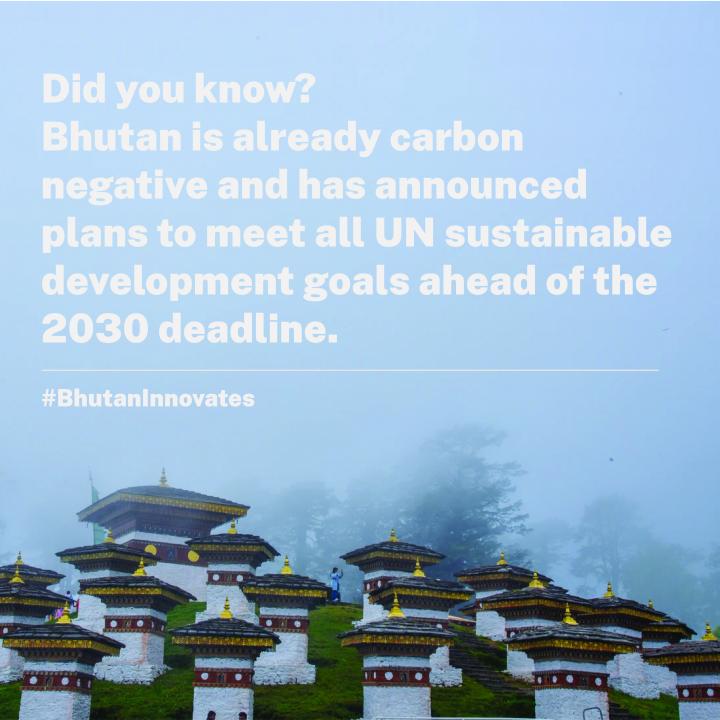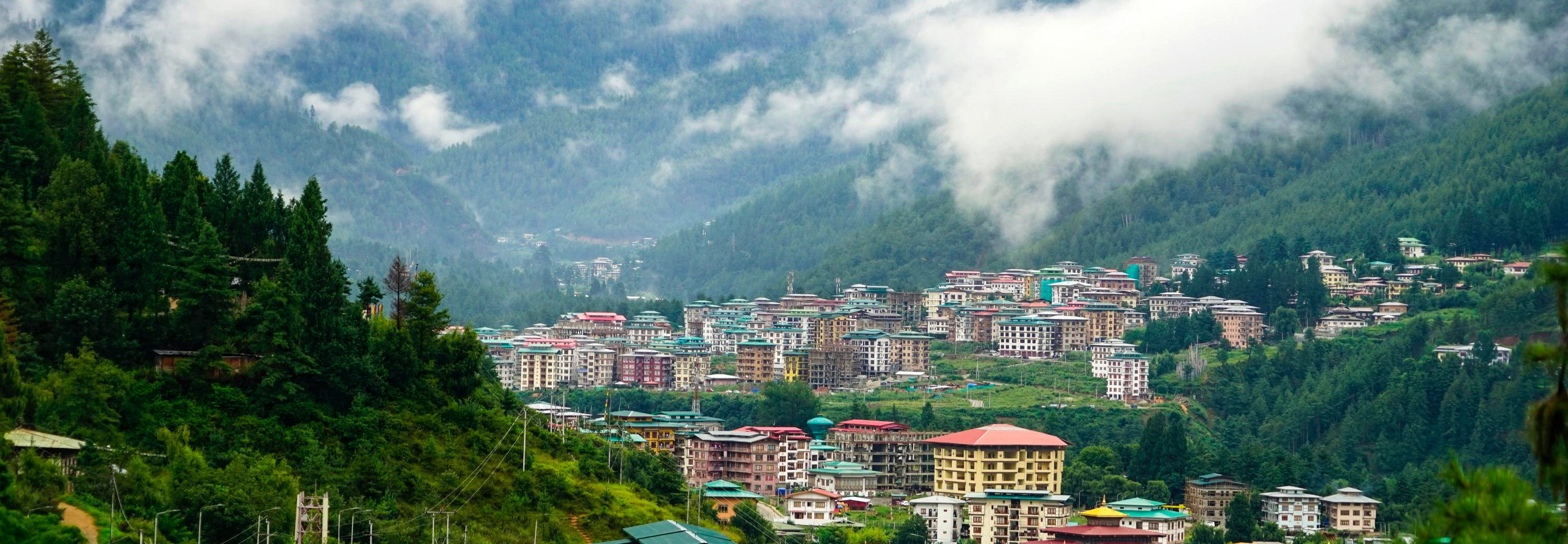Bhutan: A Country That Will Change the World
This month GIST explores the importance of agricultural technology (AgTech) and its role in ensuring our future. At the same time, our first Bhutanese cohort of innovators are progressing through our GIST Innovates program, refining their business models and connecting to their customers. One could rightly ask why GIST chose to bring its teams of experts, instructors, and mentors to Bhutan? What is it about this secluded Asian nation that makes it a perfect fit for GIST’s mission to empower science and technology innovators and strengthen emerging economies? The answers might surprise you; there is much, much more to this small mountain kingdom than meets the eye.
Measuring What Matters
A small, landlocked country nestled deep in the Himalayas between India and China, Bhutan is characterized by steep mountains and deep valleys, which led to scattered population settlement patterns. While the economies surrounding it have skyrocketed leading to widespread radical change via industrialization, Bhutan is remarkable in how much it has centered itself around intentional and sustainable “slow growth.” Since Bhutan shifted to a democratic constitutional monarchy in 2008, the country has developed a unique development management system founded on the principle of “Gross National Happiness.” The term, first coined by the 4th King of Bhutan, in 1972 was declared to be “more important than Gross Domestic Product." Ultimately, Bhutan’s happiness principle is about shifting to a system that measures multiple, often contradictory, forms of capital, and viewing growth holistically. GNH is distinguishable from Gross Domestic Product by valuing collective happiness as the goal of governance, by emphasizing harmony with nature, and traditional values as expressed in the 9 domains of happiness and 4 pillars of GNH. The most prescient of these may be the pillar of environmental conservation.
Being Negative Can Be Positive
Bhutan is, and currently remains, the only carbon-negative country on Earth. With more than 70% of the country covered in trees, Bhutan has become a “carbon sink” – meaning it absorbs more carbon dioxide than it produces. Bhutan absorbs roughly seven million tons of carbon dioxide annually and only produces around two million tons. It also exports most of the renewable hydro-electric power that it generates from its rivers, counteracting the country’s contribution towards carbon emissions by millions of tons each year. Bhutan has doubled down on its pledge to maintain its carbon-negativity, confirming so at the Climate Change Conference of the Parties (COP21) and amending its constitution so that its forested areas will not drop below 60%, and guaranteed free hydroelectric power instead of less environmentally friendly fossil fuels.
Technology and Tradition
In 2013, Bhutan became one of the first countries in the world to prioritize the use of electric vehicles, partnering with Nissan and transitioning the country towards being an “electric vehicle hotspot”. In many ways, almost 10 years ago, Bhutan was laying an infrastructural framework that the rest of the world is only now catching up to. Indeed, one of the distinguishing features of the Bhutanese model is how it uniquely hybridizes the highly technological with the highly traditional. It doesn’t view these priorities as contradictory, but rather, looks to how one might heighten and improve the other. This view has allowed Bhutan to navigate incredibly challenging situations including the COVID-19 crisis. The country was quick to form a scientific coalition to lead their COVID-19 response and drafted its National Preparedness and Response Plan, where the health ministry stationed thermal scanners, began surveillance of respiratory symptoms at Paro International Airport, and activated the national Health Emergency Operations Center. When vaccinations arrived, rollout began on March 27, 2021, and within 2 weeks, it had reached more than 90% of the adult population eligible for vaccination. However even with its focus on scientific processes, it still relied on traditional perspectives to make the work culturally meaningful. The highly religious country waited until an auspicious date and time in Buddhist astrology to start vaccinating. On Facebook on March 27, the Prime Minister's Office announced:
“Prayers filled the hall of Lungtenzampa Middle Secondary School this morning. At the auspicious time of 9.30am, Ninda Dema, a 30-year-old female born in the monkey year, was administered the first jab of the COVID-19 vaccine in the country. Sister Tshering Zangmo, also born in the same year and of the same age, in keeping with astrological requirements handled her immunization…With this, Bhutan's nationwide COVID-19 vaccination program kicks off.”
The Future has Always Been Here
This hybridization of new and old to solve pressing issues is a hallmark of Bhutanese innovation. Tradition and technology have enabled Bhutan to make noteworthy strides on many fronts, from walkable sustainable cities, integrated with urban agriculture connected by electric cars powered by free, hydroelectric power to incredible efforts towards medical resiliency, Bhutan in many ways shows us it is in fact, possible to have it all, with the right priorities and vision guiding the way.
As you can see, both nations have a lot that we can learn from each other. GIST Innovates Bhutan exists to create a connection between American and Bhutanese innovation to grow shared values. The participating innovators are up to the challenge, creating exciting solutions to pressing problems, whether it be revolutionizing rural public transportation or creating environmentally friendly value chains that uplift regional makers and producers. The U. S. Department of State’s GIST initiative hopes to bring the best of American mentorship to them, allowing them to find new opportunities for growth, commercial application, and shared national collaboration on the pressing global and regional challenges of today. The goals and vision of the Bhutanese people reflect the shared values of this current American administration, including fostering equitable human-centered growth and infrastructure, with both a near and long-term vision for environmental resiliency and sustainability. In turn, we look to Bhutanese innovation as a model for meaningful advancement, finding lessons in sustainability, equity, and expanding quality of life and flourishing; we are working together to synthesize new models and learn from one another to facilitate innovation that can change the world.
Learn more about Innovate Bhutan here, and follow for more updates from this inspiring group.



